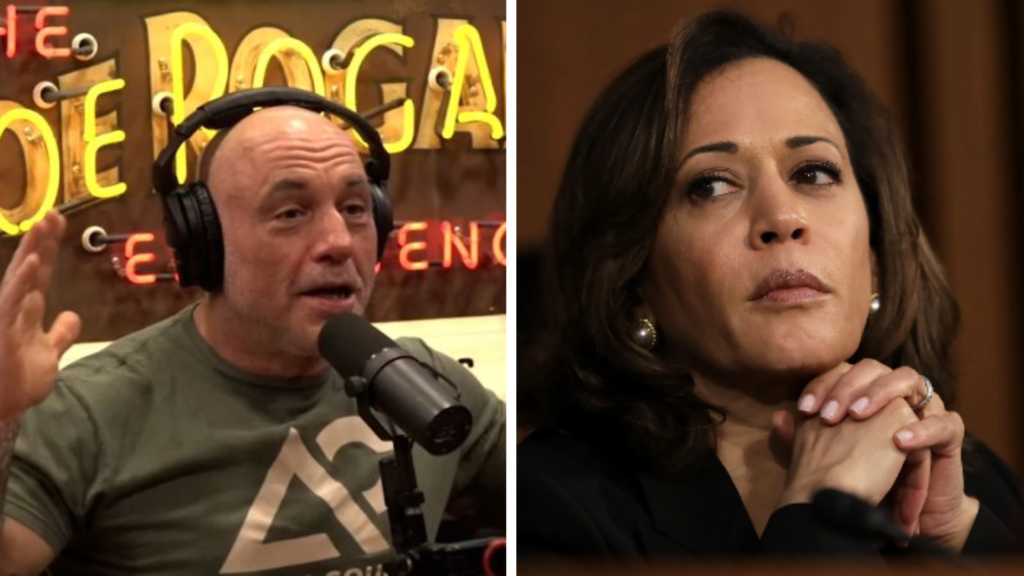
Kamala Harris reportedly disagreed to appear on Joe Rogan’s podcast due to concerns over potential backlash from her progressive staff, according to Democratic operative Jennifer Palmieri.
This decision came after a highly publicized appearance by President-Elect Donald Trump on Joe Rogan’s podcast, which generated significant media attention and a viral moment that Harris was unable to match.
Palmieri, who previously advised Second Gentleman Doug Emhoff, explained to the Daily Mail that Harris’s progressive team had expressed apprehension about her going on Rogan’s show, fearing it would alienate her core supporters.
“There was a backlash with some of our progressive staff that didn’t want her to be on it,” Palmieri said, adding that these staffers were concerned about the potential negative response from the left-leaning base.
Joe Rogan, one of the most influential media personalities with millions of listeners, also discussed Harris’s absence from his show on a recent episode.
He noted that Harris had avoided addressing the topic of marijuana legalization, which he found surprising given her evolving stance on the issue.
During her time as San Francisco District Attorney, Harris had a record of prosecuting marijuana-related cases, convicting approximately 1,900 people.
However, in recent years, she has publicly advocated for the legalization of recreational marijuana. “I think they had requirements on things that she didn’t want to talk about, like marijuana legalization,” Rogan said.
He found it “hilarious” that Harris, a prominent figure in the push for legalization, would be hesitant to discuss her record. “Because of her prosecuting record,” Rogan added, “she put a lot of people in jail for weed.”
Many political analysts and supporters saw Harris’s decision not to engage with Rogan’s massive audience as a missed opportunity to connect with a wide, cross-partisan viewership.
The podcast has millions of subscribers across the political spectrum, and Rogan himself has a significant influence on public opinion.
By avoiding this platform, Harris missed a chance to clarify her stance on marijuana, explain her record, and reach voters who may not follow traditional political media.
Rogan’s own political alignment has shifted over the years, adding further nuance to the situation.
Once a vocal supporter of Bernie Sanders in 2016, Rogan has since been critical of Democratic policies, particularly those relating to COVID-19 lockdowns, vaccine mandates, and censorship issues.
His outspoken opposition to what he calls “woke” policies has led him to resonate more with conservative audiences, making his endorsement of Trump in the recent election a pivotal moment in the campaign.
Rogan’s podcast has become a platform for free expression, often hosting a wide array of political guests. His growing association with conservative voices, despite his previously strong support for Democrats, highlights the shifting media landscape.
As the Biden-Harris administration prepares to take office, some strategists suggest that reaching beyond traditional media outlets and engaging with audiences on platforms like Rogan’s may be crucial for future political campaigns.
In retrospect, Harris’s absence from The Joe Rogan Experience is viewed by some within her camp as a misstep, limiting her reach and impact.
This decision underscores the ongoing challenges Democratic figures face in balancing progressive ideals with broader appeal, especially in a media environment that increasingly favors direct, unfiltered discussions.

